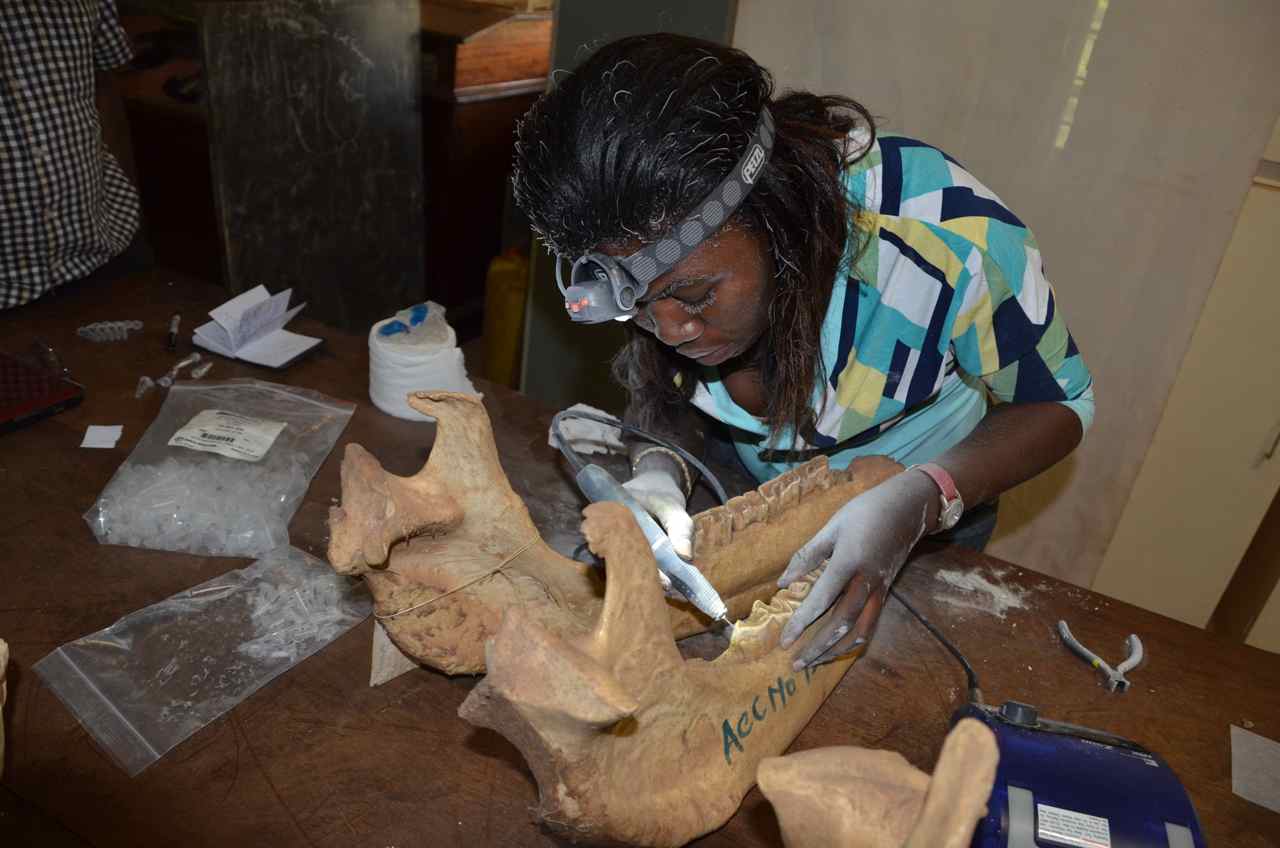
Jalia Kijemba micro-sampling a modern Rhino molar for isotopic analyses. Biological Sciences Department, Makerere University, Kampala, Uganda
Research in this lab (Rm. 425 West Hall) focuses on isotopic and elemental analyses of fossil and modern ecological material from East African sites, with the ultimate goal of understanding the co-evolution of community ecology, diet, and life history parameters in hominin evolution. The ultimate aim is to develop dietary and environmental proxies that can be used to interpret the ecology of fossil hominins. Environmental indicators currently being explored include:
- C and O isotopic signature of bulk and micro-sampled fossil herbivore enamel,
- compound specific C and H isotopic analyses of n-alkanes,
- C and N analyses of bone organics,
- C and N analyses of primate hair,
- isotopic analyses of modern ape dietary and ecosystem components,
- C and O analyses of paleosol components,
- C, O, and N isotopic analyses of ostrich eggshell
- C/N/O/Si isotopic analyses of fossil diatom organics and biosilica.
Samples are prepared in the lab and isotopic analyses are performed primarily in collaboration with the University of Michigan Department of Geological Sciences Stable Isotope Laboratory and the Light Stable Isotope Mass Spec Lab at University of Florida.



